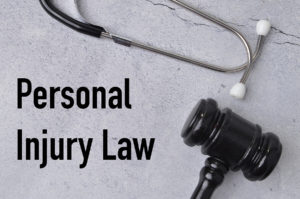How Does Personal Injury Lawsuit Work?
An accident victim can file a personal injury lawsuit if the insurance company handling their claim refuses to offer them fair compensation for their injuries. Filing a lawsuit begins the litigation process in the court system. During litigation, the parties will typically exchange documents, answer written questions called interrogatories, and take one another’s discovery depositions.
Moreover, while litigation is ongoing, the parties may continue their settlement discussions, and the case can even resolve at some point. If the case does not settle, the parties may take their case to a civil jury trial, mediation proceeding, or binding arbitration hearing.
Suppose you suffered injuries in an accident that resulted from someone else’s negligence. It is best to speak with a skilled personal injury lawyer as soon as possible. A lawyer can answer your questions and streamline your claims-filing and litigation processes. Your lawyer will do everything possible to help you recover the total amount of monetary damages you deserve for your accident-related injuries.
Injuries that Accident Victims Commonly Suffer
Accident victims often suffer debilitating injuries that leave them incapacitated for some time. When the accident victim suffers permanent injuries, they may experience pain and symptoms for the remainder of their lives.
An accident victim’s injuries depend on the accident type and impact force. For example, a car accident victim who strikes their head on the steering wheel, window, or dashboard might suffer a traumatic head injury. In contrast, a person who injures themselves in a slip-and-fall accident might suffer a broken bone or soft tissue injury.
Accident victims’ common injuries include broken bones, internal organ damage, soft tissue injuries, head injuries, scrapes, bruises, spinal cord injuries, and paralysis.
Regardless of the injuries you suffered in your accident, you must seek medical treatment immediately. You can follow up with your primary care doctor, or you may need to treat at a hospital, emergency room, or urgent care center.
While at the treatment facility, a healthcare provider on duty can examine you and order the necessary imaging studies, including MRIs, X-rays, and brain scans, to determine the severity of your injuries. If you need emergency surgery, stitches, or other medical treatment, you can undergo that treatment right at the facility. If you don’t require emergency treatment, the doctor on duty can make follow-up recommendations.
When you treat your accident-related injuries, it is crucial that you keep all of your medical appointments and that you refrain from discharging yourself from a treatment facility. When insurance companies see significant gaps in treatment, they become skeptical. They assume that the accident victim did not take their treatment seriously or that their injuries were not all that serious in the first place.
While you complete your medical treatment, your lawyer can start handling the legal aspects of your personal injury claim. For example, your lawyer can gather the necessary medical records, incident reports, police reports, eyewitness statements, impact statements, and lost-wage documents to file a claim on your behalf. After filing a claim, your lawyer can start negotiating with the insurance company and pursuing fair settlement compensation for you.
Accidents and Occurrences That Lead to Personal Injury Claims

To be eligible for monetary compensation in a personal injury claim or lawsuit, you must prove that another individual or entity was negligent. Negligence means acting unreasonably under the circumstances in existence at a given time.
A negligent individual, for example, might do something that a hypothetical reasonable person would not do under the same circumstances. Alternatively, a negligent person may fail to do something that a reasonable person would.
Some of the most common bases for personal injury cases include:
- Motor vehicle crashes – Motor vehicle accidents, including car and truck collisions, typically happen when drivers are negligent. A driver is negligent when they violate a law, operate their vehicle while intoxicated, or ignore the road. At other times, a negligent driver may engage in road rage by zealously weaving in and out of traffic without using a turn signal, causing a bad accident. Truck drivers are negligent in much the same way as car operators. In some instances, however, you can hold a trucking company fully or partially responsible for an accident, especially when an accident occurs within the scope of a driver’s employment or a trucking company negligently retains or hires a driver with a prior history of moving violations.
- Bicycle and motorcycle accidents – Unlike those in cars, cyclists do not have an outer shell surrounding them in an accident. They have minimal protection, except for their helmets and any other riding gear they might be wearing. If cyclists fall to the ground in a crash, they may sustain a severe fracture or head injury. These accidents typically happen when drivers ignore the road or drive while intoxicated. Motorcycle and bicycle accidents also occur when municipalities fail to maintain their roadways, and a large pothole or crack in the road dislodges cyclists from their bikes.
- Slip and fall accidents – Premises owners are responsible for keeping their properties reasonably safe. If they are business entities, they must not only repair or warn about known dangerous conditions on the property but also inspect their properties for unknown dangerous conditions. If they encounter a hazard during their inspection, they must warn about or promptly correct that defective condition. If they fail to do so and a visitor slips, falls and injures themselves, they can be responsible for the resulting injuries and damages.
The MNH Injury Team Gets Results
We get you the results you need and provide legal advice through the whole court process. Don’t be unprepared when you could have one of the best legal teams out there to assist you. Reach out to us today to get your consultation.
Prerequisites to Filing a Personal Injury Lawsuit in Court
Before filing a lawsuit in the court system, an accident victim must file a claim with the appropriate insurance company. In most instances, the accident victim’s lawyer will file their claim with the insurance company for the at-fault person or entity. However, in motor vehicle accident cases, if the at-fault driver did not have insurance or if they did not have sufficient coverage, a lawyer might involve the accident victim’s own insurance company via an uninsured or underinsured motorist claim.
The claims-filing process starts when an accident victim’s lawyer submits a settlement demand package to the insurance company. Settlement negotiations can begin if the insurance company accepts responsibility for the accident. In most instances, however, do not accept the insurance company’s first offer. Initial offers typically don’t cover all of your expenses. Insurance companies lowball people to see if they are in a hurry to settle their claims.
In most instances, your lawyer must negotiate with the insurance company several times before reaching a fair offer. If the insurance company refuses to offer you sufficient compensation for your injuries, your lawyer can file a lawsuit in court.
Litigating Your Personal Injury Case
Litigation begins when a personal injury lawyer files a lawsuit on the accident victim’s behalf. Even when a lawyer files suit, this does not end settlement negotiations in the case. Instead, the parties may continue negotiating a settlement throughout the discovery and post-discovery stages of litigation.
During the litigation phase of a personal injury case, the following will occur:
- The accident victim’s lawyer will file a formal complaint in court, a defense lawyer will enter an appearance on behalf of the at-fault party, and the defense lawyer will file a formal answer to the complaint.
- The parties will engage in written and oral discovery, including depositions.
- The parties will attend a mediation or settlement conference with the court to see if they can resolve the matter amicably.
- The parties will attend a jury trial and present evidence and arguments in their case. The jury will then decide the outcome of all disputed issues.
- As an alternative to a jury trial, the parties may consider binding arbitration, where a neutral arbitrator decides the sum of damages to award the accident victim.
Personal Injury Lawsuit Deadline
Victims of accidents that result from negligence only have two years from their accident date to file a claim or lawsuit seeking damages. Under almost all circumstances, if the accident victim files their lawsuit even one day late, they waive their right to recover monetary compensation for their injuries. Therefore, speak with a personal injury lawyer immediately after your accident.
If the two-year statute of limitations deadline is approaching in your case, your lawyer can promptly file a lawsuit on your behalf. Your lawyer can continue settlement negotiations with the insurance company after filing suit and beginning litigation. Your lawyer can then assist you with every step of litigation, including representing you in court at your trial.
Recovering Monetary Compensation in Your Lawsuit
Victims of serious accidents often have to live with intense pain and suffering. Accident victims can recover damages depending on the nature and extent of their injuries, medical treatment, and pain.
Potential damages that personal injury plaintiffs recover include compensation for:
- Lost wages
- Loss of earning capacity from being unable to work at all
- Pain and suffering
- Inconvenience
- Humiliation, such as when an accident victim experiences unsightly scarring
- Mental distress
- Loss of the use of a body part, such as in a paralysis injury
- Loss of life enjoyment
- Loss of spousal companionship and family support
Your lawyer can let you know which of these damages you may be eligible to recover in your personal injury case and will pursue the maximum compensation you deserve.
Call a Skilled Personal Injury Lawyer to Handle Your Claim Today

Victims of serious accidents frequently do not know where to turn for monetary compensation.
Never take on an insurance company alone. Insurance companies are usually quite large and have vast resources at their disposal. Additionally, an accident victim should focus on healing and recovery.
A skilled personal injury lawyer can review the circumstances of your accident with you and develop a plan for moving forward. A lawyer can investigate the circumstances of your accident, file a claim on your behalf, and, if necessary, file suit and litigate your case in the court system.
You do not have to decipher the lawsuit process – allow a personal injury lawyer to do this for you.
